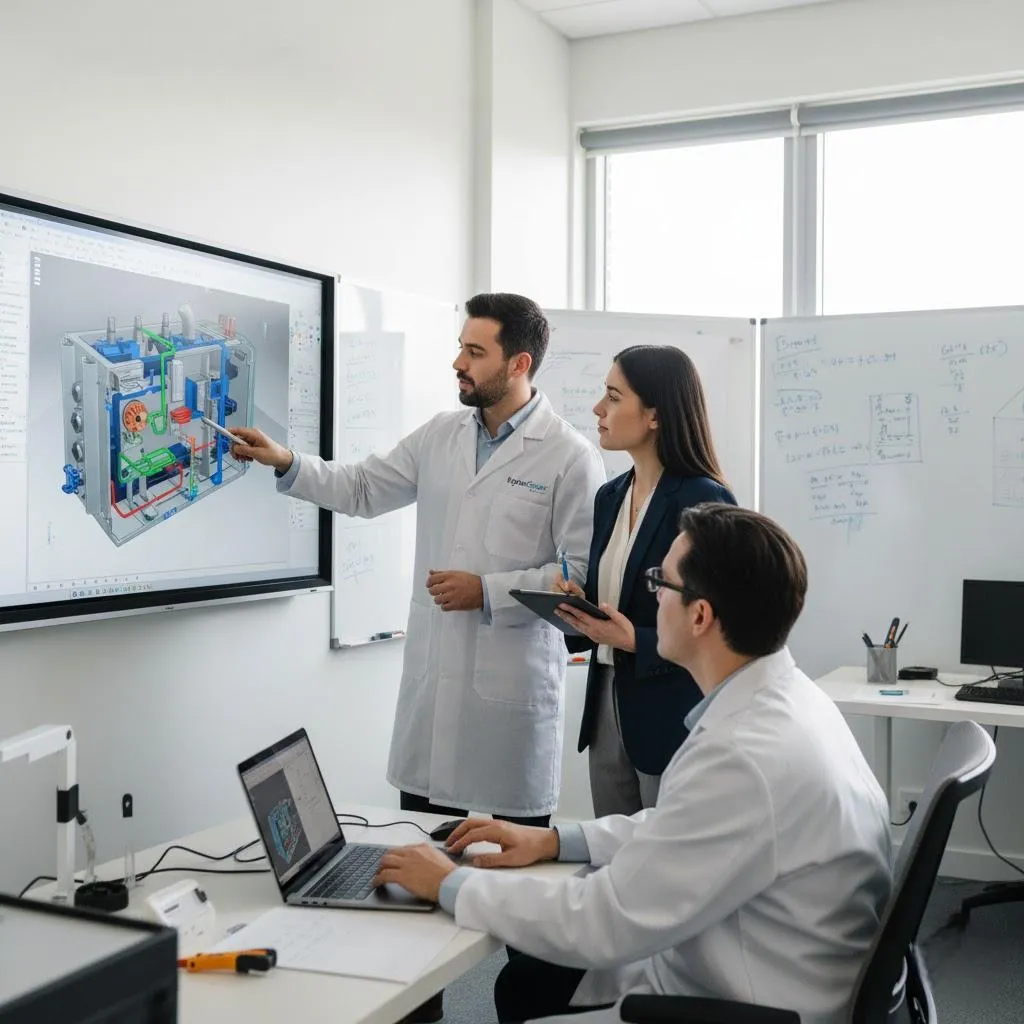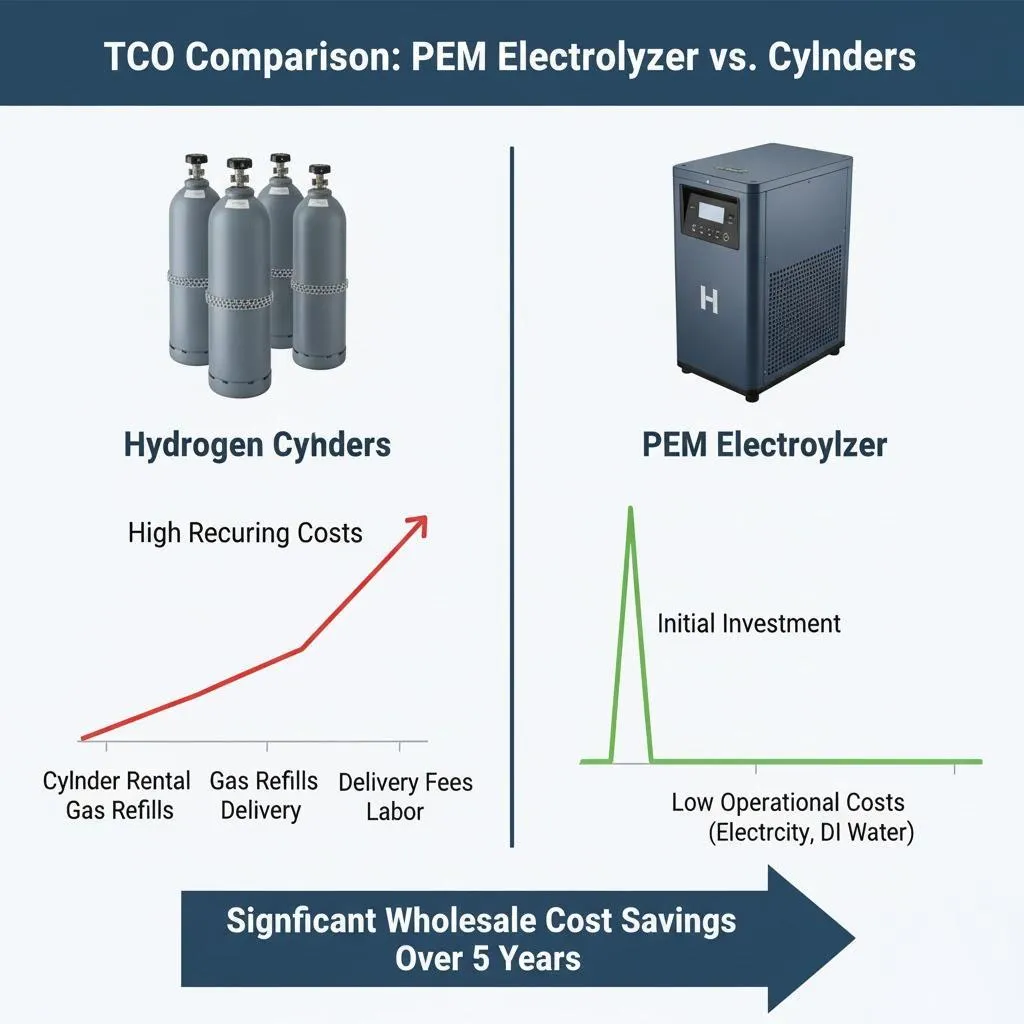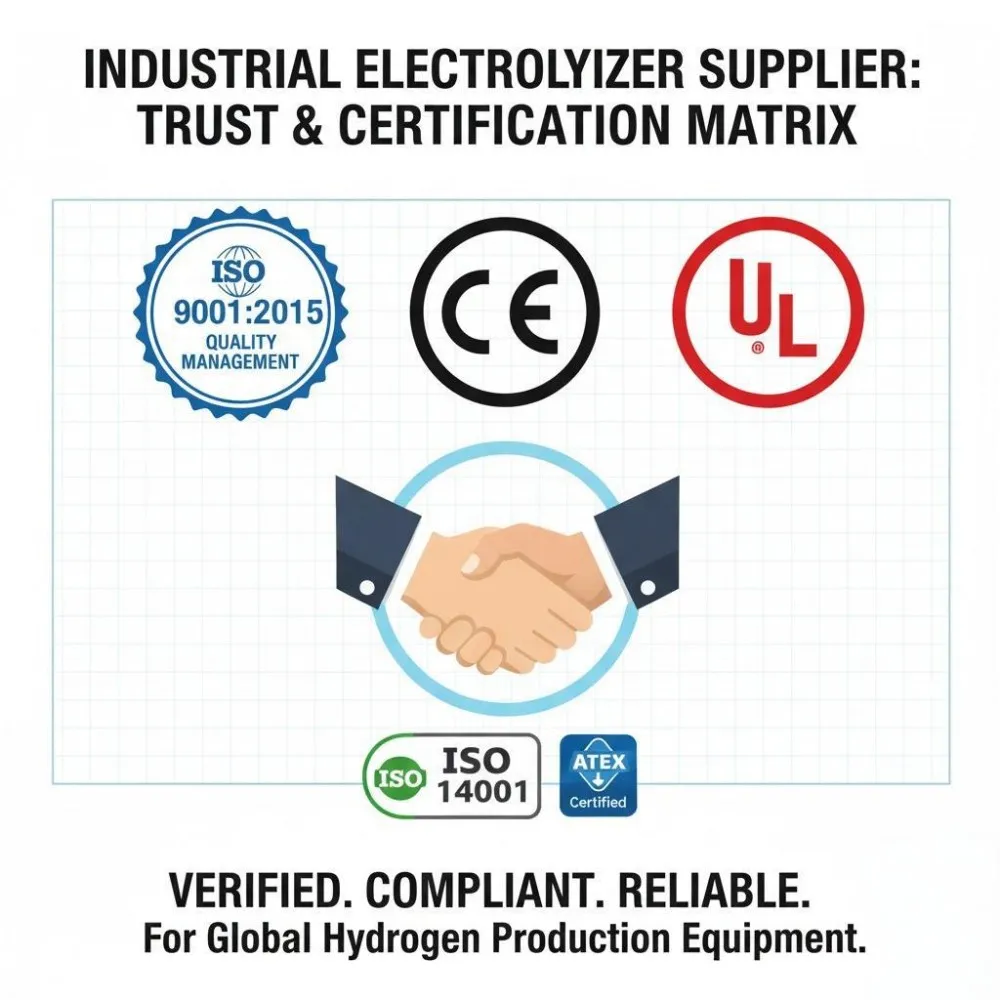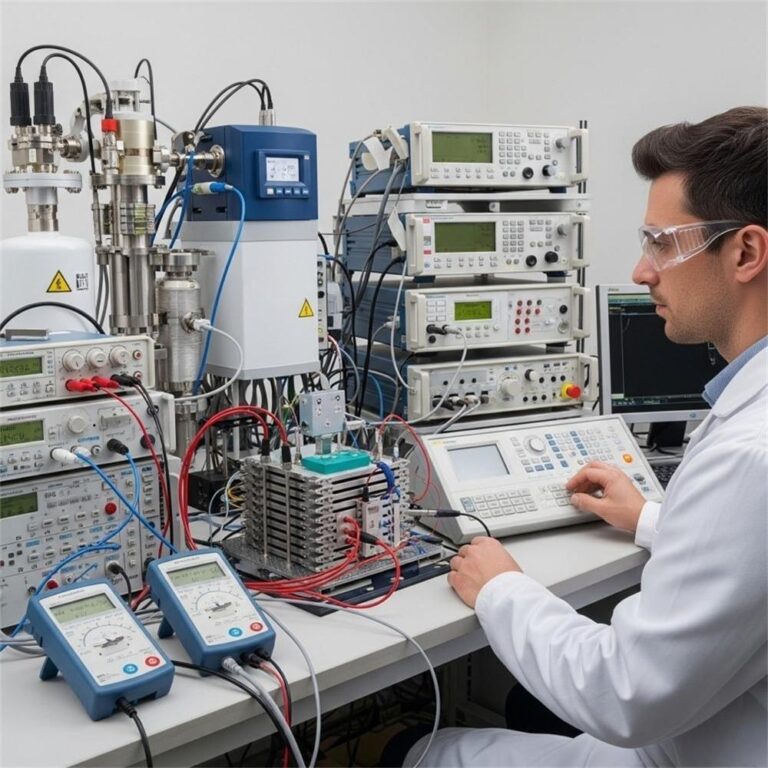300ml/min PEM Electrolyzers from China offer cutting-edge hydrogen generation with top performance, affordability, and reliability. Explore detailed insights, innovations, and buying tips in this comprehensive guide.
Introduction
The global pursuit of clean energy solutions has brought hydrogen to the forefront of innovation. Among the leading technologies enabling this shift are Proton Exchange Membrane (PEM) electrolyzers—compact, efficient devices that split water into hydrogen and oxygen using electricity. Particularly, the 300ml/min PEM electrolyzers from China have gained attention for their balance of size, performance, and cost.
With China at the epicenter of mass production and innovation in clean tech, these electrolyzers not only meet but often exceed international performance benchmarks. In this guide, we’ll explore how China’s 300ml/min PEM electrolyzers are driving a new era of green energy solutions.

Understanding PEM Electrolyzers
What is a PEM Electrolyzer?
A PEM electrolyzer is a device that uses a solid polymer electrolyte to conduct protons from the anode to the cathode while separating hydrogen and oxygen. Unlike traditional alkaline electrolyzers, PEM units are more compact, operate at lower temperatures, and offer rapid start-up times.
How PEM Technology Works
- Anode Reaction: Water molecules are split into oxygen, protons, and electrons.
- Cathode Reaction: Protons and electrons recombine to form hydrogen gas.
- Electrolyte: A proton-conductive membrane that facilitates the reaction.
Key Applications in Industry
PEM electrolyzers are essential in:
- Renewable energy storage
- Fuel cell development
- Industrial hydrogen supply
- Laboratory and educational setups
Performance Metrics of 300ml/min PEM Electrolyzers
Flow Rate and Efficiency
At 300ml/min, these electrolyzers are ideal for small to mid-scale applications. They deliver a steady hydrogen flow suited for research, prototyping, and portable energy needs.
Energy Consumption
Modern Chinese PEM units consume around 3.5–4.5 kWh/Nm³ of H₂, a competitive metric in the market.
Durability and Lifespan
Thanks to advanced membrane technology and corrosion-resistant components, these devices often exceed 10,000 operational hours under standard conditions.
Technological Innovations from China
Latest Advancements in PEM Design
Chinese manufacturers have introduced:
- Micro-channel flow plates for better water distribution
- Thin-film catalysts that reduce platinum usage
- 3D-printed components for customizability
Material Engineering Innovations
Materials like PEEK, titanium, and advanced polymers are now standard, improving overall efficiency and reducing degradation.
Integration with Smart Systems
AI-powered diagnostics and IoT monitoring are being implemented for:
- Predictive maintenance
- Real-time performance tracking
- Cloud-based control systems
Top Chinese Manufacturers of PEM Electrolyzers
Leading Brands in 2025
Some top performers include:
- SinoHy Energy
- heletitaniumhydrogen.com
- heletitaniumhydrogen
Certifications and Quality Standards
Many companies comply with:
- ISO 9001
- CE Marking
- RoHS standards
How They Compare Globally
Despite lower costs, Chinese PEM electrolyzers often match or outperform their Western counterparts in durability and efficiency.
Continuing from where we left off…
Cost Analysis and Affordability
Pricing Structure in China
One of the key advantages of sourcing 300ml/min PEM electrolyzers from China is cost-effectiveness. Depending on features and volume, prices typically range from $300 to $1,200 USD per unit. Bulk purchasing and long-term contracts can further lower costs.
Cost vs Performance Analysis
When evaluating ROI, Chinese electrolyzers offer:
- Lower initial investment
- Comparable efficiency
- Reliable customer support This combination makes them ideal for both startups and large enterprises.
Import/Export Duties and Considerations
Buyers should factor in:
- Customs tariffs
- Shipping costs
- Local regulations Partnering with experienced suppliers can streamline logistics and minimize overhead.
Supply Chain and Delivery Options
Logistics from China to Global Markets
Most Chinese manufacturers ship via:
- Air freight (for urgent needs)
- Sea freight (cost-effective bulk shipments) Shipping lead times range between 7 to 30 days, depending on destination and method.
Bulk Order Capabilities
Leading manufacturers can support:
- OEM customization
- Monthly production capacities of 5,000+ units
- White-labeling services
Lead Times and Shipping Reliability
With optimized supply chains, top companies maintain consistent delivery schedules and offer tracking systems to ensure reliability.
PEM Electrolyzers vs Other Electrolyzer Types
Comparison with Alkaline and Solid Oxide Types
| Feature | PEM Electrolyzers | Alkaline Electrolyzers | Solid Oxide Electrolyzers |
|---|---|---|---|
| Startup Time | Seconds | Minutes | Hours |
| Operating Temp | 50–80°C | 60–80°C | 700–900°C |
| Footprint | Compact | Larger | Large |
| Efficiency | High | Moderate | Very High |
| Price | Moderate | Low | High |
Use Case Scenarios
PEM electrolyzers are best suited for:
- Urban energy hubs
- Laboratory settings
- On-demand hydrogen production
Safety and Compliance Standards
Chinese Manufacturing Compliance
Top-tier Chinese manufacturers adhere to:
- GB/T hydrogen standards
- ISO and IEC certifications
- Internal quality assurance systems
International Safety Standards
Units are tested for:
- High-pressure tolerance
- Leak detection
- Thermal resistance
This ensures safe operation in varied environments.
Installation and Maintenance Requirements
Basic Setup Guide
Most units are plug-and-play, requiring:
- Power source connection (DC/AC)
- Water input (distilled recommended)
- Hydrogen output tubing
Maintenance Tips and Schedules
Routine checks include:
- Membrane integrity
- Electrode wear
- Water purity Suggested service interval: every 1,000–2,000 hours
Environmental Impact and Green Credentials
Emissions Reduction
PEM electrolyzers emit zero harmful gases, making them ideal for:
- Carbon neutrality programs
- Eco-friendly buildings
- Emission reduction targets
Use in Renewable Energy Projects
They integrate seamlessly with:
- Solar panels
- Wind turbines
- Microgrids
Converting excess electricity into storable hydrogen promotes energy sustainability.
Case Studies of Real-World Applications
Industrial Hydrogen Production
A leading electronics firm in Shenzhen uses Chinese PEM electrolyzers to generate hydrogen for PCB cleaning, reducing chemical waste by 40%.
Educational and Research Institutions
Top universities globally adopt compact PEM units for:
- Fuel cell research
- Chemistry lab experiments
- Student-led renewable energy projects
Small-Scale Renewable Energy Projects
Off-grid communities in Africa and Southeast Asia benefit from Chinese electrolyzers paired with solar power, enabling clean cooking fuel and lighting.
Customer Reviews and Performance Feedback
Testimonials from Global Buyers
- “Consistent output, durable design—perfect for our pilot hydrogen station.” – Germany
- “Easy to install and integrate with our existing system.” – Canada
- “Affordable without compromising quality.” – South Korea
Commonly Reported Strengths and Weaknesses
Strengths:
- Compact form
- Reliable flow rate
- Budget-friendly
Weaknesses:
- Some units may lack multi-language documentation
- Requires consistent water purity
Buying Guide for 300ml/min PEM Electrolyzers
What to Look for Before Buying
- Rated current and voltage
- Certifications (CE, ISO, etc.)
- Water consumption rate
- Warranty and after-sales service
Questions to Ask Suppliers
- What is the operational lifespan of the membrane?
- Can the unit handle continuous 24/7 operation?
- Are spare parts available locally?
- What’s the lead time for bulk orders?
Future Trends in PEM Electrolyzer Technology
AI Integration and Predictive Maintenance
Smart systems will:
- Alert for membrane replacements
- Optimize power usage
- Diagnose operational inefficiencies in real-time
Expected Performance Upgrades
R&D is focused on:
- New membrane materials for better conductivity
- Catalyst optimization to reduce precious metal use
- Miniaturization for portable hydrogen solutions
Frequently Asked Questions (FAQs)
1. What is a PEM electrolyzer used for?
A PEM electrolyzer is used to produce hydrogen gas by splitting water using electricity, ideal for clean energy, labs, and hydrogen fueling.
2. Why choose a 300ml/min flow rate?
It offers a reliable hydrogen output for small-scale use, balancing performance and size without requiring industrial infrastructure.
3. Are Chinese PEM electrolyzers reliable?
Yes, many Chinese models meet international quality standards and offer competitive efficiency and durability at lower costs.
4. What kind of water should I use?
Distilled or deionized water is recommended to avoid membrane fouling and extend lifespan.
5. Can I use it with solar panels?
Absolutely. PEM electrolyzers pair well with renewable sources like solar or wind, especially in off-grid or hybrid systems.
6. How long do these units last?
With proper maintenance, most units can last 10,000+ hours, with some premium models going beyond 15,000 hours.
Conclusion
China’s 300ml/min PEM electrolyzers represent a powerful convergence of innovation, efficiency, and cost-effectiveness. Whether for industrial, educational, or environmental applications, these compact systems are driving the clean energy movement forward. Their adaptability, smart integration, and robust performance make them an ideal choice for anyone exploring hydrogen as a fuel of the future.







